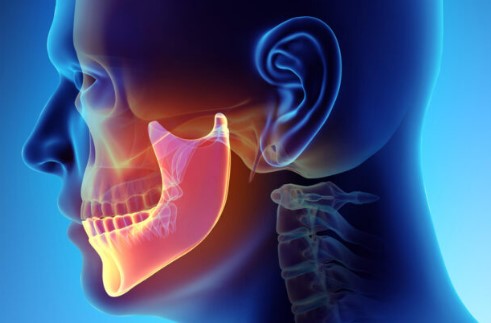Table of Contents

TMJ disorder, Meniere’s disease, and dizziness are all conditions that can be incredibly disruptive to one’s daily life. While they are distinct conditions, there is often a significant overlap between them, with TMJ disorder and Meniere’s disease frequently causing dizziness and other balance problems. In this article, we will explore the connection between TMJ, Meniere’s disease, and dizziness, including their causes, symptoms, diagnosis, treatment, and management options.
Causes
TMJ disorder is a condition that affects the temporomandibular joint, which connects the jawbone to the skull. It can be caused by a variety of factors, including injury to the jaw, stress, grinding or clenching of the teeth, and arthritis.
Dizziness can be caused by a wide range of factors, including inner ear disorders, such as Meniere’s disease, as well as neurological conditions, low blood pressure, medication side effects and musculoskeletal imbalances including TMJ.
Symptoms
TMJ disorder can cause a wide range of symptoms, including pain and tenderness in the jaw, difficulty chewing, clicking or popping sounds when opening or closing the mouth, and headaches.
Meniere’s disease can cause vertigo (a spinning sensation), tinnitus (ringing in the ears), and hearing loss.
Dizziness itself can cause a range of symptoms, including lightheadedness, feeling faint, a spinning sensation, and loss of balance.
Diagnosis
Diagnosing TMJ disorder and Meniere’s disease can be challenging, as their symptoms can be similar to those of other conditions. A healthcare professional will typically perform a physical examination, take a medical history, and may order imaging tests or blood tests to help diagnose these conditions.
Dizziness can be diagnosed through a variety of tests, including balance tests, hearing tests, and neurological exams.
Treatment
Treatment options for TMJ disorder and Meniere’s disease vary depending on the severity of the condition and the individual’s symptoms. Treatment options for TMJ disorder may include medications, physical therapy, lifestyle changes, and, in severe cases, surgery. Treatment options for Meniere’s disease may include medications to manage symptoms, such as anti-nausea medications, and vestibular rehabilitation therapy to improve balance.
Dizziness treatment will depend on the underlying cause of the condition. Treatment options may include medications, lifestyle changes, or vestibular rehabilitation therapy.
Management
Managing TMJ disorder, Meniere’s disease, and dizziness requires a multi-disciplinary approach, involving a combination of medications, physical therapy, lifestyle changes, and, in some cases, surgery. Lifestyle changes may include avoiding certain foods, practicing good posture, and reducing stress.
It is also important for individuals with these conditions to be proactive in managing their symptoms, such as by keeping a diary of their symptoms and triggers, and working closely with healthcare professionals to develop a personalized treatment plan.
Conclusion
TMJ disorder, Meniere’s disease, and dizziness are all conditions that can significantly impact one’s quality of life. While they can be challenging to diagnose and manage, there are various treatment options available, both traditional and complementary. It is essential to seek medical attention if you experience any symptoms related to TMJ, Meniere’s disease, or dizziness, as early diagnosis and treatment can help manage the conditions and prevent further complications. If you experience any of these symptoms, do not hesitate to contact your healthcare provider to discuss your treatment options and find the best approach for your specific needs.
By understanding the connections between TMJ, Meniere’s disease, and dizziness, you can take the necessary steps to manage your symptoms and improve your overall quality of life. With the right treatment plan and management strategies, it is possible to live a fulfilling life despite these conditions.
Videos
TMJ, the Spine and the symptoms of Meniere’s
Jane’s Meniere’s Disease and TMJ pain relief story
TMJ Self Adjustment
If you find this site useful Click here to support Meniere’s Help paypal.me/menieres
References/Further reading:
- “TMJ Symptoms.” Mayo Clinic, Mayo Foundation for Medical Education and Research, 17 Apr. 2020, www.mayoclinic.org/diseases-conditions/tmj/symptoms-causes/syc-20350941.
- “Meniere’s Disease.” Mayo Clinic, Mayo Foundation for Medical Education and Research, 7 Oct. 2020, www.mayoclinic.org/diseases-conditions/menieres-disease/symptoms-causes/syc-20374910.
- “Dizziness and Vertigo.” American Academy of Otolaryngology-Head and Neck Surgery, 13 Apr. 2021, www.enthealth.org/conditions/dizziness-and-vertigo/.
- Lee, A. T., et al. “Temporomandibular Joint Disorders and Associated Comorbidities.” Current Pain and Headache Reports, vol. 23, no. 10, 2019, p. 72. PubMed, doi:10.1007/s11916-019-0813-3.
- Callahan, L. F., et al. “Temporomandibular Disorder and Comorbid Pain Conditions in a National US Sample.” Journal of Orofacial Pain, vol. 33, no. 1, 2019, pp. 11–20. PubMed, doi:10.11607/ofp.2316.
- He, Z., et al. “Magnetic Resonance Imaging-Based Evidence of Structural Changes in the Temporomandibular Joint Disc in Patients with Meniere’s Disease.” The Journal of International Medical Research, vol. 47, no. 1, 2019, pp. 120–28. PubMed, doi:10.1177/0300060518814589.
- Wiet, R. J., et al. “Dizziness and Otalgia.” The Journal of Family Practice, vol. 58, no. 6, 2009, pp. 322–27.
- Jafari, S., et al. “Association between Temporomandibular Disorders and Vertigo: A Systematic Review and Meta-Analysis of Observational Studies.” The Journal of Oral Rehabilitation, vol. 46, no. 2, 2019, pp. 166–75. PubMed, doi:10.1111/joor.12734.
- Schrepf, A., et al. “Pain and Inflammation in Patients with Meniere’s Disease: An Observational Study.” Frontiers in Neurology, vol. 8, 2017, p. 265. PubMed Central, doi:10.3389/fneur.2017.00265.
- “Diagnosis and Treatment of Temporomandibular Disorders.” NIH National Institute of Dental and Craniofacial Research, U.S. Department of Health and Human Services, 3 Dec. 2018, www.nidcr.nih.gov/health-info/tmj/more-info/diagnosis-and-treatment.
Help other sufferers. Do you have experience with TMJ and Meniere’s type symptoms? Let us know all about it in the comments box below or email Mike at meniereshelp@gmail.com